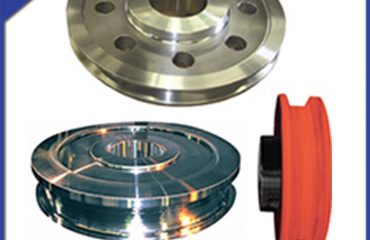
In the complex web of industrial infrastructure and everyday piping systems, forged fittings emerge as unsung heroes, silently but powerfully ensuring the seamless flow of fluids and gases. These unassuming components play an indispensable role, thanks to their unique manufacturing process and remarkable properties.
Forged fittings are created through the meticulous process of forging, where metal is subjected to intense pressure and heat to shape it into the desired form. This process begins with carefully selecting the right metal, such as carbon steel, stainless steel, or alloy steel, depending on the specific application requirements. Once heated to a malleable state, the metal is then shaped using powerful forging equipment. This forging process aligns the grain structure of the metal, resulting in enhanced strength and durability that far surpasses that of cast or fabricated fittings.
One of the most significant advantages of forged fittings lies in their superior strength. They can withstand high pressures and temperatures, making them ideal for use in industries where harsh operating conditions are the norm. For example, in the oil and gas industry, pipelines often carry fluids at extremely high pressures over long distances. Forged fittings, with their ability to endure such stress, ensure the integrity of the pipeline system, preventing leaks and potential disasters.
In addition to strength, forged fittings offer excellent corrosion resistance. Materials like stainless steel and certain alloy steels used in their production provide a protective barrier against corrosive substances. This property is crucial in industries such as chemical processing, where pipes are exposed to a variety of aggressive chemicals. Forged fittings can maintain their structural integrity over time, reducing the need for frequent replacements and minimizing downtime.
The precision manufacturing of forged fittings also allows for tight tolerances. This means that the fittings can be made to exact specifications, ensuring a perfect fit within the piping system. A precise fit not only enhances the overall efficiency of the system but also reduces the risk of fluid leakage. In applications where the accurate flow of fluids is critical, such as in power generation plants or aerospace systems, the tight tolerances of forged fittings are of utmost importance.
Forged fittings come in a diverse range of types to meet different piping needs. Elbows change the direction of the flow, tees split or combine the flow, and couplings connect different pipe segments. Each type is designed with specific functionality in mind, providing flexibility in designing and building piping systems across various industries. Whether it’s a complex industrial plant or a simple plumbing system in a residential building, there is a forged fitting to suit the requirement.
In conclusion, forged fittings are an essential part of modern infrastructure. Their strength, durability, corrosion resistance, and precision make them irreplaceable in numerous industries. As technology continues to advance and industries evolve, the demand for high – quality forged fittings is only set to increase. Understanding their role and importance helps us appreciate the intricate engineering that goes into creating reliable and efficient piping systems.
 Language
Language Espanol
Espanol English
English Italian
Italian عربى
عربى
 Skype: chinamaker99
Skype: chinamaker99  Tel: 86-316-5120812
Tel: 86-316-5120812  Email:
Email:  Whatsapp:
Whatsapp: 
